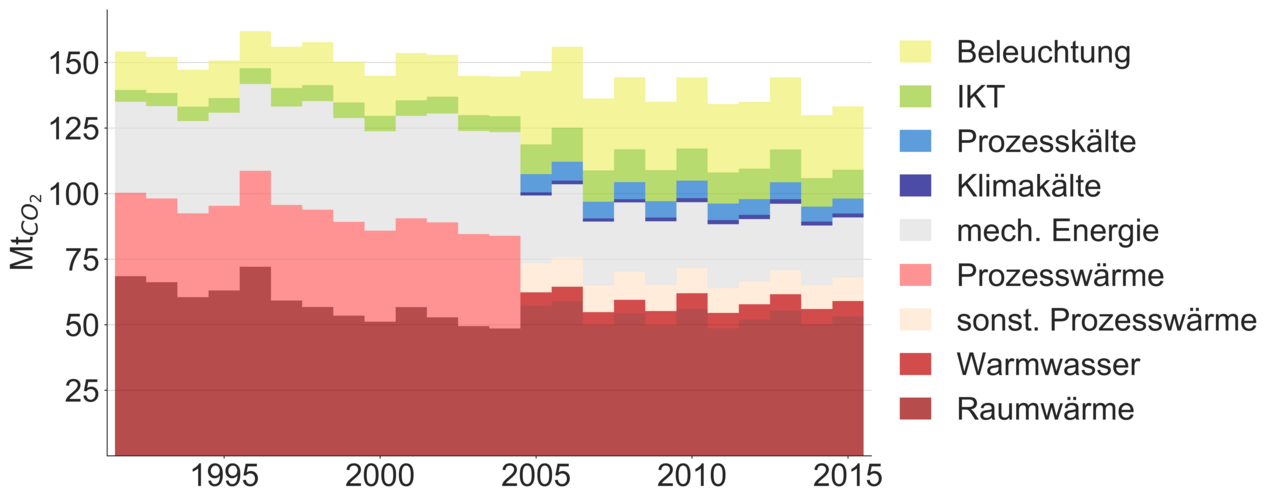Calculating the future final energy use of the German Business, Commerce and Services sector (short: BCS; German: GHD) based on a forward projection of the useful energy demand of the same
| Funding | Bundesministerium für Wirtschaft und Energie (BMWi) |
| Duration | October 2016 till September 2019 |
| Project lead | Thomas Zipperle M.Sc. |
| Contact | Thomas Zipperle M.Sc. Clara Orthofer M.Sc. |
As part of the ‘Energiewende’, Germany has decided to reduce its greenhouse gas (GHG) emissions drastically compared to the past. In scientific and political discourse, therefore, countless measures are being discussed that could help achieve this important goal. The insights on how to realize these ambitious reduction targets most efficiently are however still lacking.
The objective of the Dynamis collaborative research project therefore is the development of methods and tools for the analysis of CO2 mitigation measures. The resulting methodological basis should allow individual measures or combinations of measures to be assessed for emissions reduction, in order to identify appropriate ways of cost-efficient decarbonisation. The core and basis of this analysis is the detailed presentation of German energy consumption. Therefore, comprehensive bottom-up models of the useful energy consumption are developed within the framework of the project. These numbers can then be used for the calculation and forward projection of the future final energy demand. Utilizing its many years of experience the Chair of Energy Economics and Application Technology will model the development of the German Business, Commerce and Services sector.
The study is carried out by a project consortium consisting of the Forschungsstelle für Energiewirtschaft e.V., the Forschungsgesellschaft für Energiewirtschaft GmbH and the Chair of Energy Economics and Application Technology at the Technical University of Munich.
The study is funded by the German Federal Ministry of Economics and Energy (BMWi) within the framework of the 6th Energy Research Program of the Federal Government (promotion indicator: 03ET4037C). Additionally, the project is financially supported by twelve company partners which will also support the research with data and practical experience as well as examine the research results for their feasibility.
